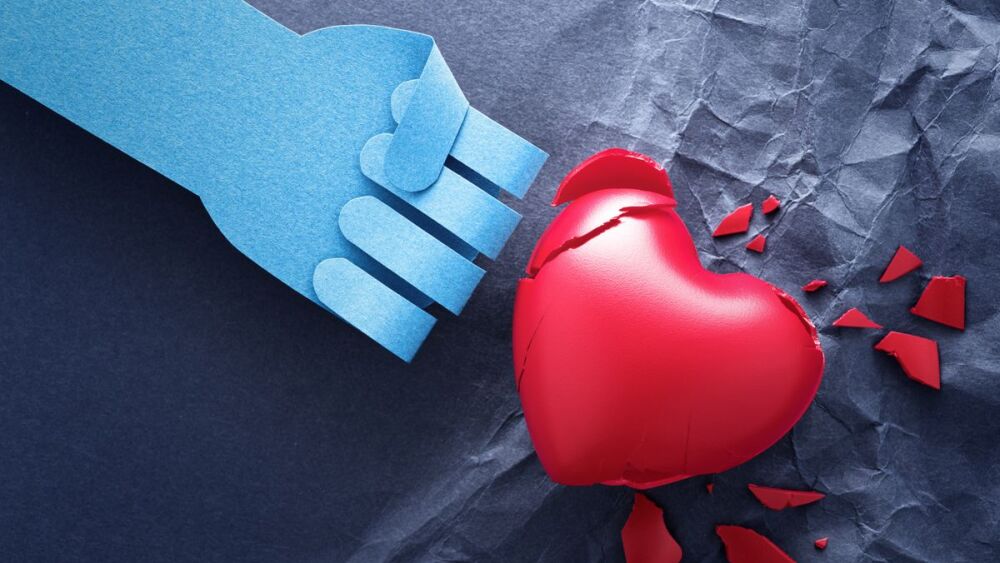By Brooke Bartlett, Ph.D.
There’s a name for the chronic feelings of guilt and shame experienced by so many first responders. It’s called moral injury.
Although the definition of moral injury has evolved since its inception, the experts who coined the term define it generally as “perpetrating, witnessing, being unable to prevent, or learning about actions that transgress one’s core beliefs and values” (Litz et al., 2009). That’s a long way of saying that we might experience moral injury when we perceive that we, or someone else, has violated a moral code or value that we hold.
Morally injurious events often occur within the context of trauma; however, it’s important to note that moral injury, although highly associated with post-traumatic symptoms, is considered a separate and distinct syndrome from PTSD (Koenig & Zaban, 2021).
Prevalent among first responders
Moral injury is slowly starting to gain more traction as a serious and prevalent issue among first responders. Here are a few reasons why:
- Research indicates that police, dispatch, paramedics, firefighters, EMTs and other first responders are at increased risk of moral injury due to the repeated trauma they are exposed to as a part of the job (Joannou et al., 2017, Lentz et al., 2021). The chronic exposure to violence, severe injuries, and death provides a bevy of potential situations that could lead to a perceived transgression of morals.
- First responders often must make snap decisions in situations where their safety or the safety of others are at risk, which may involve directly engaging in actions that violate one’s morals. Contrarily, even if a first responder is not violating any of their morals at the time of a snap decision, an unfavorable outcome (e.g., death of victim, serious injury to crewmember) can lead to the same road of remorse and moral injury.
- The inherent nature of a first responder is being a life-saver and problem-solver; any perceived deviation from such perception can be detrimental to one’s psyche and lead to morally injurious symptoms.
Scenarios that could lead to moral injury
There are numerous situations that first responders are faced with that could potentially result in moral injury. The following is a non-exhaustive list of some of the morally injurious scenarios I come across most often in my work with first responders:
- A firefighter being unable to save a victim or having to choose between victims to save. While firefighters often face situations in which they put themselves in harm’s way to save others, they are also burdened with situations in which they are unable to help someone due to external factors or in which they are forced to choose who they are able to help due to limited time and staffing.
- A law enforcement officer having to use physical or lethal force to resolve a criminal incident. Similar to military work, policing is one of the few careers in public safety where use of force is a necessary and accepted tool, which increases moral complexity (Lentz et al., 2021).
- A paramedic having a patient die in route to the hospital or finding out that their patient died after arriving at the hospital. The role of a paramedic is rife with morally injurious threat as they are often tasked with juggling multiple conflicting roles. These include keeping their patient alive until arriving at the hospital, managing the patient’s loved ones, and keeping themselves out of harm’s way. Even more, paramedics may feel a profound sense of helplessness and devaluation once they’ve arrived at the emergency department and have transferred the care of their patient to hospital staff (Lentz et al., 2021).
- A fellow first responder dying by suicide. Sadly, many first responders are faced with the trauma of grieving the suicide of a brother or sister in the service, which can pose a threat for moral injury.
- “Fire service family versus civilian family.” Fire service culture is one of cohesiveness and camaraderie, and many crewmembers are considered family. While advantageous in many ways, this often presents a morally injurious conflict that requires first responders to seemingly “choose” between being loyal, dependable and available to their fire service family while simultaneously trying to do the same for their civilian family (e.g., spouses, partners, children). Many first responders experience turmoil for missing noteworthy events (e.g., holidays, birthdays) and spending extended periods of time away from their loved ones due to the occupational demands of the job.
- Organizational betrayal. This can occur in many ways (e.g., lack of resources, blocked promotions, altercations with supervisors) and may leave first responders with feelings of anger, underappreciation, disappointment, distrust and helplessness.
Signs of moral injury
There are several signs of moral injury:
- Feeling like you did not do enough to help a friend, patient or victim.
- Falling down the rabbit hole of the “should have’s,” “could have’s” and “would have’s” (e.g., “I should have seen the signs that they were struggling”; “I could have done more to save them”; “If only I had been more alert, I would have been able to prevent it”).
- Feelings of guilt (e.g., blaming yourself for what happened because of your direct actions or being unable to prevent the actions of others). It’s important to note that in the case of moral injury, guilt is often times unrelated to actual wrongdoing.
- Feelings of shame (e.g., labeling yourself as a “bad person” because you blame yourself for the death of a patient).
- Social withdrawal and isolation.
- Engaging in self-destructive behaviors (e.g., alcohol/drug abuse) as a means of self-condemnation and punishment.
- Loss of spirituality or religious beliefs, if previously held.
Taking action
If you think you are experiencing moral injury, you should take the following steps:
- Talk to someone you trust. Talking to someone else about what we are struggling with not only provides us with connectedness, but it also provides an opportunity for us to be presented with a more objective, unbiased perspective on the facts of a situation – a key aspect of treating moral injury.
- Take time to objectively reflect on the facts of the morally injurious event. Were there factors that were beyond your control? Are there things you had no way of knowing at the time of the event? If a family member or loved one had been the one involved in this event, would you blame them in the same way you blame yourself?
- Seek treatment. There are effective, short-term (e.g., 6 weeks or less) treatments proven to be effective in treating moral injury, such as Trauma-Informed Guilt Reduction Therapy (TriGR; Norman et al., 2019).
If you’re worried that you might be suffering from moral injury, know that you’re not alone. You do not need to subject yourself to carrying the backbreaking burden of guilt and shame. Symptoms of moral injury are treatable, and, when equipped with the right knowledge and tools, they are also preventable. Recognizing symptoms of moral injury is the first and most important step in addressing them.
About the author
Brooke Bartlett, Ph.D., is a licensed clinical psychologist and the CEO/owner of Center for Trauma, Anxiety, and Stress Inc. In addition to being a trauma specialist, Dr. Bartlett is highly specialized in working with first responders and military veterans and has contributed extensively to the scientific research of trauma psychology among these two populations. A major focus of her professional work is promoting first responder wellness by assisting departments and organizations in the creation and implementation of mental wellness programs through training, consultation and on-call critical incident services. Dr. Bartlett is also a professor of psychology at several higher education institutions. To learn more about Dr. Bartlett, visit her website or connect with her via LinkedIn or email.
References
Joannou, M., Besemann, M., & Kriellaars, D. (2017). Project trauma support: Addressing moral injury in first responders. Mental Health in Family Medicine, 13, 418–422.
Koenig, H. G., & Al Zaben, F. (2021). Moral injury: An increasingly recognized and widespread syndrome. Journal of religion and health, 60(5), 2989-3011. https://doi.org/10.1007/s10943-021-01328-0.
Lentz, L. M., Smith-MacDonald, L., Malloy, D., Carleton, R. N., & Brémault-Phillips, S. (2021).
Compromised conscience: A scoping review of moral injury among firefighters, paramedics, and police officers. Frontiers in Psychology, 12, 681. https://doi.org/10.3389/fpsyg.2021.639781.
Litz, B. T., Stein, N., Delaney, E., Lebowitz, L., Nash, W. P., Silva, C., & Maguen, S. (2009). Moral injury and moral repair in war veterans: A preliminary model and intervention strategy. Clinical Psychology Review, 29(8), 695–706. https://doi.org/10.1016/j.cpr.2009.07.003.
Norman, S., Allard, C., Browne, K., Capone, C., Davis, B., & Kubany, E. (2019). Trauma informed guilt reduction therapy: Treating guilt and shame resulting from trauma and moral injury. Academic Press.













